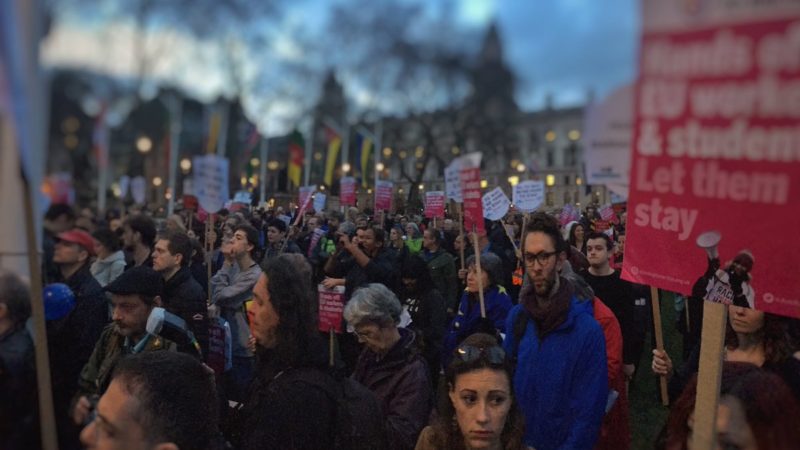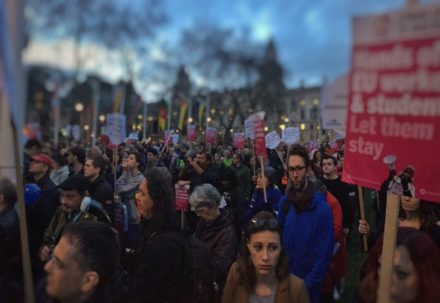

The EU continues to create divisions across the political spectrum. This time, they are coming from Labour and the concerns of some northern MPs about the party being seen as “trying to block Brexit” after Keir Starmer argued for a “transitional Bexit deal that provides maximum certainty and stability”.
This transitional deal, which includes remaining in the customs union and single market, places Labour in firm opposition to the government, with Starmer going on to say that this stance was “explicitly ruled out” by Liam Fox and Phillip Hammond. However, as well as putting Labour at odds with the Tories, this stance has also prompted dissent internally. Caroline Flint came out against Labour’s strategy and said she would vote with the government on the EU Withdrawal Bill, saying Labour’s job was “to improve the bill, not kill it.”
Flint is not the only MP to discuss breaking the whip on Brexit votes. Recently three northern MPs said they were “concerned about the perception they are trying to ‘block Brexit’ by voting against the bill”. This position presents not only a fundamental division in Labour, but also a misunderstanding of what the withdrawal bill actually does.
The bill has nothing to do with whether or not we actually leave the EU. Starmer himself has even said that Labour’s soft position on Brexit would not be an attempt to negate it – rather we will be “leaving the EU come what may.”
Instead, what the bill focuses on, is where power lies after Britain has left the EU. The bill is, in fact, a renaming of the infamous Great Repeal Bill. Whether or not it was a political decision, the semantics of this re-branding are clever, as they allow MPs voting against it to be painted as being against the act of pulling out of the EU itself.
When coupled with the shift to a soft Brexit that Labour has undergone, this can lead to divisions and difficulty within the party. Politico recently reported that “Labour remains badly split over immigration, with the parliamentary party suffering a severe north/south divide.” This schism could crudely be described as being between those MPs whose constituents voted for Brexit, and those who voted against it. Immigration, however, isn’t covered in the bill. Instead, it will be dealt with in a different paper later down the line.
The main concerns around the withdrawal bill centre on the Henry VIII clause, which allows “primary legislation to be amended or repealed by subordinate legislation with or without further parliamentary scrutiny.” In short, the government would be able to tweak the bill after it has been passed, but without needing a vote on it.
These clauses allow for laws to be written that are “only examined by parliament if an annulment motion is tabled in time. Otherwise they bypass scrutiny altogether and take effect automatically.” Labour MPs need to unite against the bill because these clauses – which fly in the face of the “take back control” mantra – promise to return power to Britain and its people but deliver it no further than Whitehall and Westminster.
Although Labour MPs have largely condemned the bill as being a government power grab, it has reopened the north/south divide on immigration policy within the party. This creates a particularly dangerous and delicate balancing act for Labour MPs whose constituents largely backed Remain. They need to find a way to effectively challenge the government’s Brexit policy, while avoiding being seen as betraying the will of their constituents, a will that may lead to divisions within the PLP.
The bill has already had something of a storied history. From its re-naming to the delays that seem to plague it, it has been reported that the bill won’t be debated this month, facing opposition from Labour as well as Tory rebels. While this does show the weakness of the government, with a Tory MP even calling the administration “pathetic,” it also gives Labour a reprieve, and a chance to mend the rupture that Brexit exposed in the party.




More from LabourList
Majority of Labour members oppose government’s anti-migration measures
‘First past the post is corroding trust in politics. The government must make all elections fit for the future’
‘Hope starts young: Why Labour must tell the story of a better tomorrow’